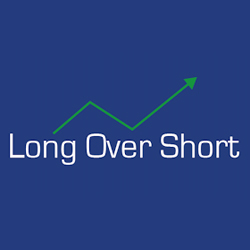Canada’s stock market continues to demonstrate remarkable strength across multiple sectors. Investors seeking opportunities, including those exploring just casino for fun, recognize Canadian equities as prime investment choices.

Financial institutions, energy companies, and technology firms dominate the Toronto Stock Exchange (TSX), representing stability and growth potential for portfolios.
1. Royal Bank of Canada (RY) – 244 billion CAD
RY stands as Canada’s largest company by market capitalization, maintaining leadership in personal banking, commercial services, and wealth management across North America and select global markets. The bank’s extensive network serves over 17 million customers globally.
The bank’s digital transformation initiatives and customer-focused approach contribute to its consistent performance. Mobile banking adoption rates continue to rise, reducing operational costs while improving customer satisfaction scores.
RY’s dividend yield of 3.24% attracts income-focused investors, supported by a payout ratio that balances shareholder returns with reinvestment needs. The bank’s strong capital position exceeds regulatory requirements, providing flexibility for future growth opportunities.
The bank’s wealth management and capital markets divisions generate significant fee-based income, reducing reliance on traditional banking spreads. Investment in artificial intelligence and blockchain technology positions RY at the forefront of financial innovation.
2. Toronto-Dominion Bank (TD) – 138.57 billion CAD
TD ranks second among Canadian banks, excelling in retail banking operations across Canada and the United States. The bank’s customer-centric approach and convenient operating hours set it apart from competitors.
The bank’s expansion strategy in the U.S. market creates new revenue streams and diversification benefits. TD’s American operations now contribute substantially to overall earnings, reducing dependence on the Canadian market.
TD maintains a 5.15% dividend yield, supported by stable earnings and prudent risk management. The bank’s conservative lending practices and strong credit quality contribute to consistent financial performance.
Strategic investments in digital platforms enhance service delivery while optimizing operational efficiency. TD’s focus on environmental, social, and governance (ESG) initiatives attracts sustainability-conscious investors.
3. Enbridge Inc (ENB) – 129.68 billion CAD
Enbridge operates North America’s largest pipeline network, transporting approximately 25% of crude oil produced in North America. The company’s infrastructure assets provide essential services to major energy markets.
The regulated business model generates predictable cash flows, supporting an attractive 6.10% dividend yield. Long-term contracts and cost-of-service agreements provide revenue stability regardless of commodity price fluctuations.
Enbridge’s renewable energy portfolio continues to expand, including wind, solar, and geothermal projects. These investments position the company for the energy transition while maintaining stable returns from core operations.
Strategic acquisitions and organic growth projects strengthen Enbridge’s competitive position. The company’s expertise in project execution and stakeholder management supports its growth initiatives.
4. Thomson Reuters Corp (TRI) – 105.99 billion CAD
TRI stands as a global leader in providing critical information and solutions to professionals across multiple sectors. The company’s core strength lies in its proprietary databases and analytics platforms serving legal, tax, accounting, and news markets.
The information provider’s subscription-based revenue model ensures steady income streams, with over 80% of revenue being recurring. Long-term contracts with large institutions provide revenue visibility and stable cash flows.
TRI’s artificial intelligence and machine learning initiatives enhance product offerings and operational efficiency. The company’s investments in AI-powered solutions create competitive advantages in data analysis and content delivery.
Strategic partnerships with technology companies and educational institutions strengthen TRI’s market position. The company’s 1.22% dividend yield reflects its focus on reinvesting in growth opportunities while maintaining shareholder returns.
5. Canadian Natural Resources Ltd (CNQ) – 100.64 billion CAD
CNQ ranks as one of North America’s largest energy producers, with diverse operations spanning oil, natural gas, and oil sands production. The company’s vast asset base includes long-life, low-decline reserves.
The producer’s integrated approach and operational flexibility allow quick adjustments to market conditions. CNQ’s ability to switch between commodities optimizes returns through price cycles.
A low-cost structure and efficient operations support the 4.35% dividend yield. The company’s debt reduction strategy and disciplined capital allocation strengthen its financial position.
CNQ’s environmental initiatives include significant investments in emissions reduction technologies. The company’s balanced approach to sustainability and profitability appeals to both value and ESG-focused investors.
Sector Analysis of Canada’s Top Stocks
Financial institutions dominate Canada’s leading stocks, representing 40% of the top 10 with four major banks: Royal Bank of Canada, Toronto-Dominion Bank, Bank of Montreal, and Bank of Nova Scotia. These banks collectively account for approximately 570 billion CAD in market capitalization.
Transportation emerges as the second most prominent sector, with Canadian Pacific Kansas City and Canadian National Railway representing 20% of the top companies. Energy companies, including Enbridge and Canadian Natural Resources, also hold substantial positions.
Technology services claim important positions through Thomson Reuters and Constellation Software, reflecting Canada’s growing tech presence. The predominance of financial institutions highlights the banking sector’s stability, conservative management, and strong regulatory framework. These banks’ high dividend yields, ranging from 3.24% to 5.63%, particularly attract income-seeking investors.

 Hot Features
Hot Features













